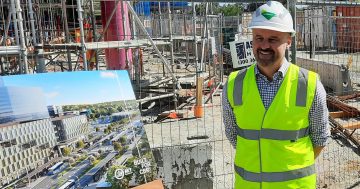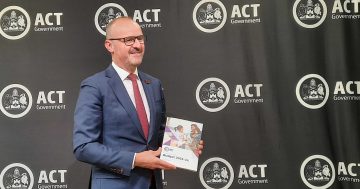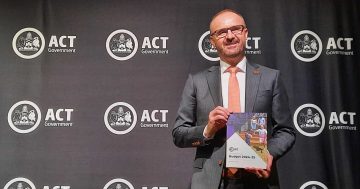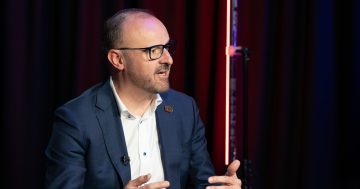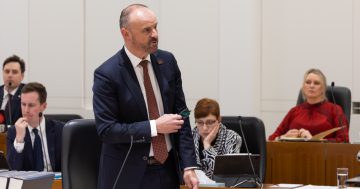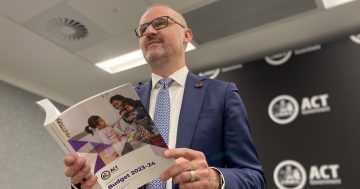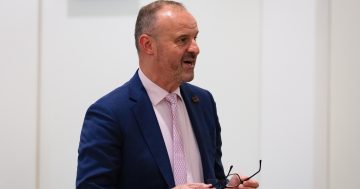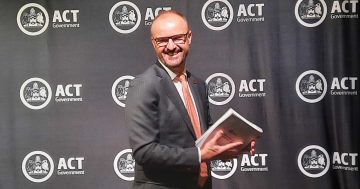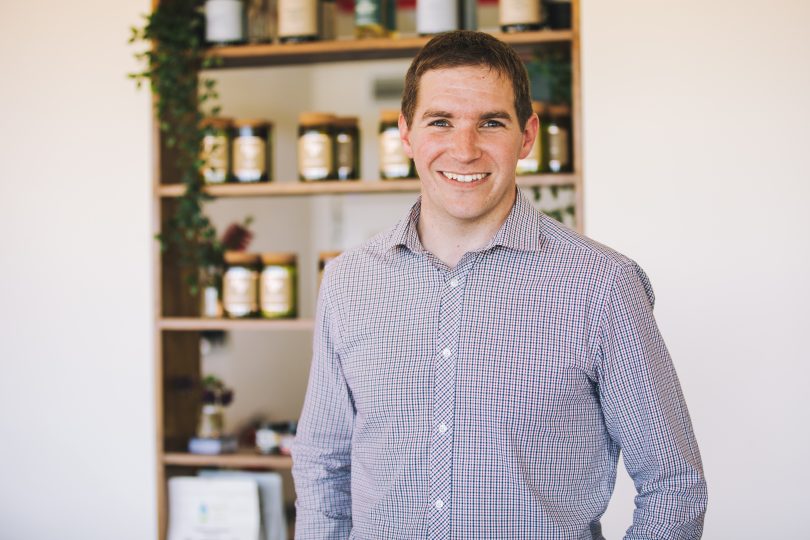
Alistair Coe has told ACT residents to expect more from their Government. Photo: File.
Opposition leader Alistair Coe has asked Canberrans to have higher expectations ahead of this year’s election following the Government’s budget blowout last week.
The mid-year update revealed that the 2019-20 ACT budget deficit is projected to triple to $255 million, prompting Mr Coe to appeal to voters to not be content with Labor’s financial mismanagement.
“It is staggering that the ACT is in debt to the tune of $3 billion, and that is growing to $4 billion,” Mr Coe told Region Media.
“Canberrans would be right to expect the same from the ACT Labor Government, which is higher rates, taxes, fees and charges.”
“We want people to have high expectations for their city.
“We do not want people content with having the worst emergency department waiting times in the country, deteriorating numeracy and literacy results in the ACT, and 8,000 kids living in poverty in the Territory.”
The Government has defended the deficit, saying that lower revenue from land sales and decreasing GST revenue from the Commonwealth have hit the bottom line.
The budget could potentially worsen as the full impact of the bushfires, coronavirus and the hail storm are not yet known.
Revenue this year has taken a $103 million hit, with $422 million less forecast over the four years to 2022-23.
Chief Minister Andrew Barr has consistently attacked his Liberal counterpart for not revealing economic policy details.
“These things are cyclical,” Mr Barr told Region Media.
“If it is the opposition’s position that they do not support any of the bushfire recovery spendings, if they believe that other taxes should be lifted to fill the gap that the GST revenue decline has created, that is their position.
“If they believe that at the moment the most important thing is that the Territory raises more revenue or spent less or some combination of the two, then let them put that forward as a proposition.”
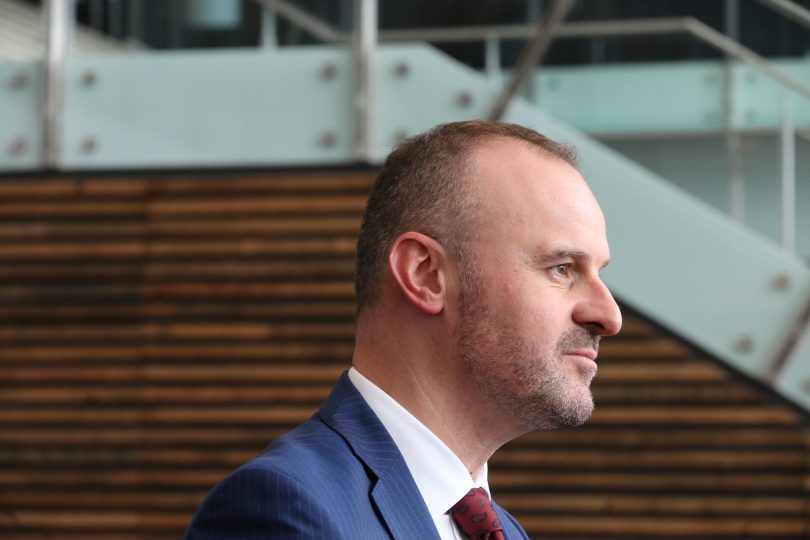
Chief Minister Andrew Barr said the Budget has been heavily impacted by factors outside of the Government’s control like the coronavirus and the bushfires. Photo: Dominic Giannini.
But Mr Coe has rejected the Chief Minister’s assertion.
“I think we have to put this in perspective. Yes, we would rather not have the coronavirus and bushfires; however, the impact should be quite manageable,” he said.
“For instance, the loss of GST revenue is expected to be $17 million based on what they projected in June, but the amount of money they are getting from the Commonwealth this year is still going to be $50 million more than what we got last year.
“This is an extraordinary hit. Some of it is related to revenue, but the majority of it is related to expenditure.”
The Liberals have proposed that the Government freeze rates to make the city more affordable, but Mr Barr has questioned the validity of their economic propositions to the bottom line.
“What will they cut? What other taxes will they increase? Otherwise, their proposal is exactly the same as the government’s,” he said.
“The onus is on them, eight months out from the election, to outline what their alternative budget management policy will be, what their alternative economic development policy will be.”
But Mr Coe has said it is the ACT Government’s land revenue obsession that is hurting the economy.
“The rate freeze, which I think is a very important policy to the cost of living, will cost about half a per cent of revenue over the four-year period. It is not a hugely expensive policy but it is an important one for Canberra households,” he said.
“We have already committed to more land, and when you release more land for homes you give more Canberrans an opportunity to live in the city they grew up in. We want to see more construction here in the ACT, not less.
“By having more people in the ACT rather than the other side of the border, you generate a lot more revenue, of course, from the construction process but also from the Commonwealth, because the Commonwealth funding follows the population.
“The Government is already constructing new projects the problem is they are deliberately doing it very slowly to restrict the number of blocks that come onto the market and therefore drive up the price.
“They are worse than one of the big banks when it comes to super-profits.”
Residents will be able to choose who they want managing the ACT’s economy in eight months’ time, with the election to be held on 17 October.












